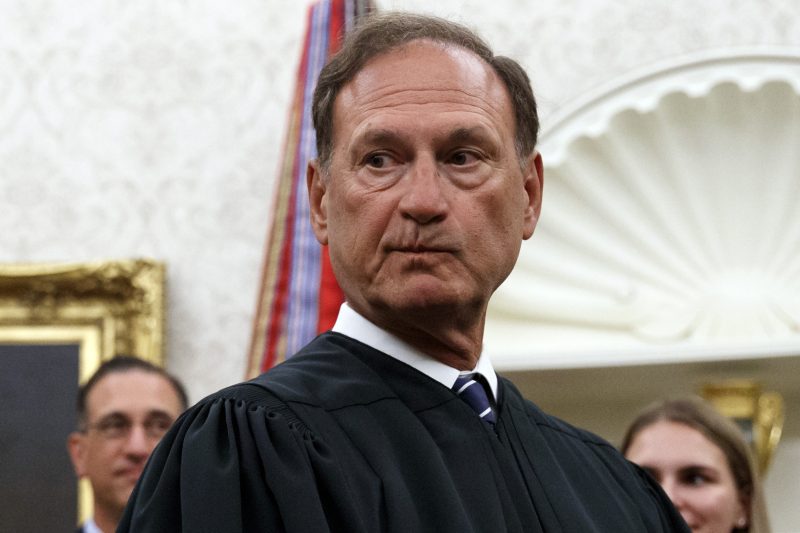In a recent development that has sparked debate among legal experts and observers alike, U.S. Supreme Court Justice Samuel Alito appears to have made a significant decision regarding his own impartiality. Known for his conservative leanings and often considered a reliable member of the Court’s conservative bloc, Justice Alito’s supposed self-assessment is generating buzz for its implications on the Court’s decisions and the perception of judicial impartiality.
It is not uncommon for Supreme Court Justices to face scrutiny over their perceived impartiality, particularly in cases where their personal beliefs and affiliations may conflict with the requirements of the law. The principle of judicial impartiality is essential to maintaining public trust in the judiciary and ensuring fair and just outcomes in legal matters. Justice Alito’s reported self-assessment raises questions about the extent to which personal biases may influence judicial decision-making, especially in cases that align with a Justice’s ideological preferences.
The announcement of Justice Alito’s self-assessment comes at a time when the Supreme Court is considering several high-profile cases with far-reaching implications. As one of the longest-serving Justices on the current Court, Justice Alito wields considerable influence over the Court’s decisions and has been a consistent voice for conservative legal principles. His supposed acknowledgment of his own impartiality could have reverberations on how his opinions are received and interpreted by the public and legal scholars.
Critics of Justice Alito argue that a Justice’s self-assessment of their own impartiality may not always align with objective measures of judicial fairness. The perception of impartiality is as important as the reality, and any hint of bias or partiality can undermine public confidence in the judiciary. By declaring himself sufficiently impartial, Justice Alito may inadvertently fuel skepticism about the Court’s ability to deliver unbiased justice, particularly in cases where his own views may be at odds with prevailing legal norms.
On the other hand, supporters of Justice Alito may view his self-assessment as a sign of integrity and self-awareness. Acknowledging one’s own potential biases is a critical step towards ensuring fair and impartial decision-making, even for experienced jurists like Justice Alito. By publicly stating his stance on impartiality, Justice Alito may be signaling a commitment to upholding the rule of law and the principles of justice, despite his ideological leanings.
The implications of Justice Alito’s self-assessment are likely to play out in future Court decisions and in the broader discourse surrounding judicial impartiality. As the Supreme Court navigates complex legal challenges and contentious social issues, the perceived fairness and objectivity of its Justices will continue to shape public perceptions of the Court’s legitimacy. Justice Alito’s declaration of his own impartiality adds a new dimension to the ongoing debate over the role of ideology in judicial decision-making and underscores the importance of upholding the principles of justice and fairness in the legal system.

